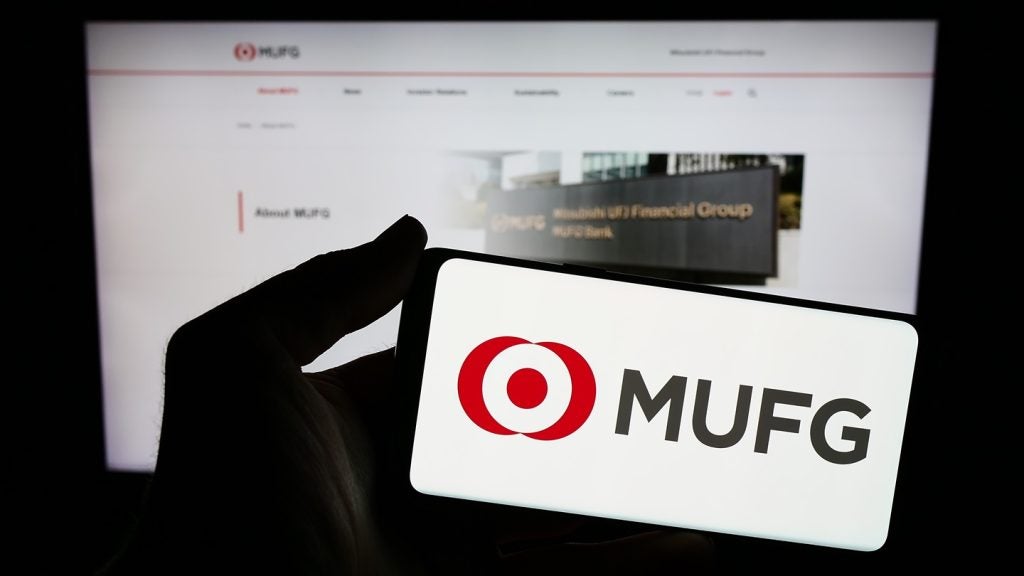plans for expansion in Asia in 2008, promising to make the region
the centre of yet more competition. Ambitious hiring plans threaten
to drive salaries even higher as hundreds more advisers are
sought.
How well do you really know your competitors?
Access the most comprehensive Company Profiles on the market, powered by GlobalData. Save hours of research. Gain competitive edge.

Thank you!
Your download email will arrive shortly
Not ready to buy yet? Download a free sample
We are confident about the unique quality of our Company Profiles. However, we want you to make the most beneficial decision for your business, so we offer a free sample that you can download by submitting the below form
By GlobalDataAmong banks setting out assertive plans for growth in Asia-Pacific,
Morgan Stanley is to launch private wealth management services in
India next year, representing its first onshore wealth foothold in
Asia.
Leslie Menkes, managing director of the bank’s Singapore-based
regional wealth division, said his firm plans to hire around 100
private bankers. This will be Morgan Stanley’s “first build-out on
an onshore private wealth business in Asia”, he added. The bank
forecast that it should be managing around $1 billion in private
banking assets in India at the end of three years, operating in
eight locations in the country by the end of 2010.
Morgan Stanley’s focus in India will be on the rupee-based business
targeting wealthy clients who have $5 million in assets,
representing around 40 percent of India’s estimated 100,000
millionaires. An Indian onshore operation would be followed by the
launch of a similar business in China, without giving a specific
date, Menkes said, addressing a Reuters Wealth Summit.
Morgan Stanley has already hired four senior executives from
Merrill Lynch to set up the Indian private banking business. In
addition, it recently poached seven senior private bankers from
Deutsche Bank’s private bank in Singapore for its Asian efforts.
The bankers, who include Victor Lee, the former head of Deutsche’s
private banking team covering Singapore, will handle super-rich
private clients in the city-state.
JPMorgan to increase staff by 50%
JPMorgan Private Bank also plans to expand its hiring efforts in
Asia, increasing front-line staff by 50 percent in the coming year.
Michael Fung, head of Asian private banking, said the bank could
increase its team of advisers to 180 from 120 as it targets
entrepreneurs and other classes of wealthy in the region. The bank
generally aims at clients with at least $25 million to
invest.
Meanwhile, Citi Global Wealth Management has just set up a
mega-wealth unit in Asia to serve regional super-rich. Akbar Shah,
head of the new operation, said he plans to hire ten top bankers to
drive revenue growth at a faster rate than other Citi wealth
management operations in Asia.
Target clients, typically with at least $250 million in tangible
net worth, would come from countries such as Hong Kong, Singapore,
Taiwan and Indonesia. The mega-wealth unit has been created to
advise clients on investments and business alliances as well as
wealth preservation.
Citi’s overall wealth arm, which targets clients who have $10
million in investable assets, claims its private banking clients in
the region include half of Asia’s billionaires.
Among Swiss banks, Credit Suisse plans to double its wealth
revenues and staff in Asia in the next two years, and aims to
launch a private banking operation in Japan late next year,
according to Marcel Kreis, head of private banking Asia-Pacific.
Kreis said the group’s Asian private banking assets have grown at
an annual pace of 20 to 25 percent in the past three to four
years.
“I am comfortable that we are going to be able to grow at that
pace. That is the medium-term goal,” he said.
Credit Suisse is looking for a chief executive, relationship
managers and product specialists for its push into Japan.
UBS expanding in Japan
UBS is also expanding its wealth management business in Japan,
after entering the country for private banking three years ago.
Business is building steadily as local investors become more open
to diversifying their wealth across products, asset classes and
geographies, according to Jean-Claude Humair, head of wealth
management at UBS Japan.
Japanese wealthy have about ¥300 trillion ($2.57 trillion) in
assets, according to UBS research. It is targeting HNW individuals
with financial assets in excess of ¥200 million and the
mega-wealthy with more than ¥5 billion. This elite totals about
500,000 households, less than 1 percent of Japan’s population. In
addition, UBS is targeting entrepreneurs in the import-export
business, whom the bank has found more open to dealing with a
foreign bank and more adventurous in their investments.
At Julius Baer, executives expect the Asian region to account for
10 to 20 percent of its global business in three to five years. The
growth in Asia’s private banking business has been “north of 30
percent”, said Wilfried Kofmehl, Baer’s chief executive of private
banking for South-East Asia. “All the relationship managers have
performed above our expectations,” he added.
Kofmehl also said Julius Baer, which currently has 240 employees in
Singapore and Hong Kong, expects to add another 100 staff by
2010-2011. Baer opened offices in Singapore, Hong Kong and Dubai
last year to expand its business outside of Europe. Singapore,
which acts as the bank’s regional centre for South-East Asia, also
functions as the booking centre for Asia. The bank is considering
opening a second Asian booking centre in Hong Kong, Kofmehl
said.
BNP Paribas expects assets up 20%
BNP Paribas is expanding its onshore private banking presence in
China, India and Taiwan and expects total assets under management
in Asia to grow by 20 percent a year in the next few years,
according to the head of its Asia private banking operation, Michel
Longhini. The French bank now has 30 staff in its onshore private
banking operation in Shanghai and plans to double that to 60 by
next year.
In India, BNP Paribas’s onshore private banking unit – which sells
rupee-based products and services to domestic clients – employs 60
people in six cities. In Taiwan, the bank employs 30 people in two
cities.
VP Bank, the Liechtenstein wealth manager, has opened an asset
management company in Hong Kong, called VP Wealth Management (Hong
Kong). VP Bank, which already has a representative office in Hong
Kong, also plans to open a bank in Singapore by the end of
2007.
“By supplementing the representative office with an asset
management company, VP Bank is taking another step to enhancing its
wealth consulting activities and presence in the Asian region,”
said Adolf E Real, VP Bank Group’s chief executive. Clare Lam, a VP
Bank executive director and deputy chief representative for VP Bank
in Hong Kong since 2006, heads the new venture.
ING Groep’s Asia-Pacific fund management division expects
double-digit growth over the next three to five years, driven by
sales of products tailored to its 13 markets in the region. It is
also interested in additional acquisitions in those markets, said
Christopher Ryan, chief executive of ING Investment Management
Asia-Pacific, which manages more than $100 billion.
Last June ING announced it will buy South Korean asset manager
Landmark Investment Management, beefing up its existing fund
operations in that country. Last year it also agreed to buy ABN
AMRO’s domestic asset management business in Taiwan.
Targeting Taiwan
Several banks are also competing to expand in Taiwan, one of Asia’s
strongest economies and an alternative to the long haul of building
up a presence in mainland China. The island’s citizens are
estimated to hold more wealth than in any Asian country except for
China and Japan.
HSBC plans to expand with 40 to 50 advisers in wealth management in
Taiwan in the next 12 months. It is recruiting bankers in Taiwan to
reach a goal of managing 6 percent to 7 percent of the island’s
NT$4 trillion ($122 billion) private wealth in three years,
according to Sanjiv Sud, Taipei-based senior vice-president for
HSBC personal financial services. “Our target is to exceed market
growth rate in the mass affluent segment,” Sud said.
The number of HSBC’s Taiwanese clients who have at least NT$3
million of liquid assets grew 20 percent in the past year.
HSBC is going head to head with foreign banks such as Standard
Chartered and local players including Chinatrust Financial Holding
to serve the wealthiest in Taiwan.
The private banking arm of US insurer AIG is aiming to take 10
percent of Taiwan’s wealth management market within five years,
targeting residents who have made big money in China, its
executives said.
AIG’s newly launched Taiwan wealth management business is due to
reach the break-even mark by the end of next year, said Peter Wild,
chief executive of AIG Private Bank.
UBS has previously declared that it aims to boost its share of
Taiwan’s wealth management market to 10 percent by 2015 from about
1 percent now. That will equate to some $70 billion of assets under
management. UBS is determined to expand in Taiwan despite an
earlier unsuccessful attempt to buy a local financial institution
or enter joint venture partnerships.
The Swiss group has asked Standard Chartered and US buyout fund
Lone Star “to team up with us”, UBS executives said. It has also
asked some Taiwan financial holding firms to transfer their branch
licences.
Chinatrust ambitions
Among local players, Chinatrust Financial, which is Taiwan’s
leading credit card issuer, has said it expects fee income from its
wealth management business to jump to more than NT$10 billion this
year from NT$8.4 billion in 2006. The bank said this growth would
come as Taiwan’s affluent population shifts their wealth from
savings to investment accounts.








